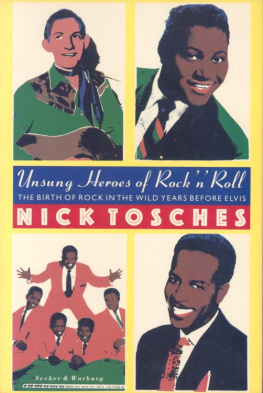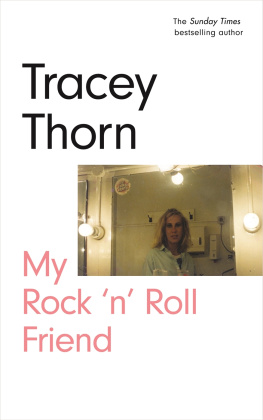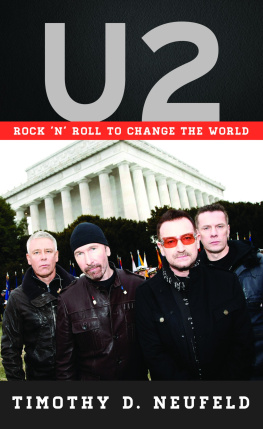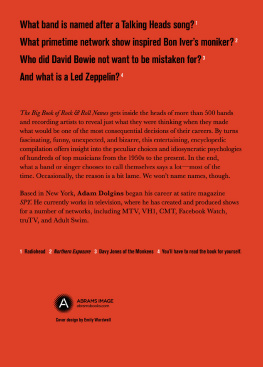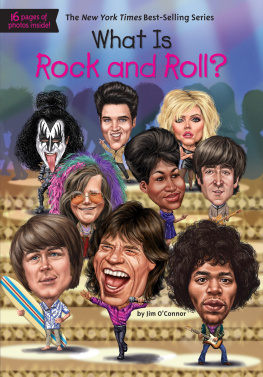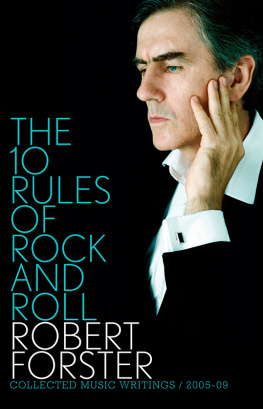Barry Taylor - Sex, God, and Rock n Roll: Catastrophes, Epiphanies, and Sacred Anarchies
Here you can read online Barry Taylor - Sex, God, and Rock n Roll: Catastrophes, Epiphanies, and Sacred Anarchies full text of the book (entire story) in english for free. Download pdf and epub, get meaning, cover and reviews about this ebook. year: 2020, publisher: Fortress Press, genre: Religion. Description of the work, (preface) as well as reviews are available. Best literature library LitArk.com created for fans of good reading and offers a wide selection of genres:
Romance novel
Science fiction
Adventure
Detective
Science
History
Home and family
Prose
Art
Politics
Computer
Non-fiction
Religion
Business
Children
Humor
Choose a favorite category and find really read worthwhile books. Enjoy immersion in the world of imagination, feel the emotions of the characters or learn something new for yourself, make an fascinating discovery.

- Book:Sex, God, and Rock n Roll: Catastrophes, Epiphanies, and Sacred Anarchies
- Author:
- Publisher:Fortress Press
- Genre:
- Year:2020
- Rating:5 / 5
- Favourites:Add to favourites
- Your mark:
- 100
- 1
- 2
- 3
- 4
- 5
Sex, God, and Rock n Roll: Catastrophes, Epiphanies, and Sacred Anarchies: summary, description and annotation
We offer to read an annotation, description, summary or preface (depends on what the author of the book "Sex, God, and Rock n Roll: Catastrophes, Epiphanies, and Sacred Anarchies" wrote himself). If you haven't found the necessary information about the book — write in the comments, we will try to find it.
Barry Taylor: author's other books
Who wrote Sex, God, and Rock n Roll: Catastrophes, Epiphanies, and Sacred Anarchies? Find out the surname, the name of the author of the book and a list of all author's works by series.
Sex, God, and Rock n Roll: Catastrophes, Epiphanies, and Sacred Anarchies — read online for free the complete book (whole text) full work
Below is the text of the book, divided by pages. System saving the place of the last page read, allows you to conveniently read the book "Sex, God, and Rock n Roll: Catastrophes, Epiphanies, and Sacred Anarchies" online for free, without having to search again every time where you left off. Put a bookmark, and you can go to the page where you finished reading at any time.
Font size:
Interval:
Bookmark:
SEX, GOD, AND ROCK N ROLL
Catastrophes, Epiphanies, and Sacred Anarchies
Copyright 2020 Fortress Press, an imprint of 1517 Media. All rights reserved. Except for brief quotations in critical articles or reviews, no part of this book may be reproduced in any manner without prior written permission from the publisher. Email copyright@1517.media or write to Permissions, Fortress Press, PO Box 1209, Minneapolis, MN 55440-1209.
Cover image: javarman3/iStock
Cover design: Alisha Lofgren
Print ISBN: 978-1-5064-0906-1
eBook ISBN: 978-1-5064-0907-8
Dedication:
M. The end. Done.
Acknowledgment:
Memory is imagined.
It is generally believed that the journey toward the universal requires walking a wide path. In the natural sciences, a single result that appears to prove a theory could well be an anomaly. Tests have to be repeated, new experiments devised.
Only when a theory is verified repeatedly does it begin to take the shape of knowledge. Similarly, in psychology, larger sample sizes mean more trustworthy results. The more people in an experiment, the more you can minimize individual eccentricities and glimpse general principles.
But philosophers such as Sren Kierkegaard understood that some of the deepest insights dont arise from large sample sizes and generalized tests. Rather, they surface from a deep penetration of the singular. By courageously digging as deep as possible into his own subjectivity, Kierkegaard wrote in a way that revealed something about the nature of human existence. He wasnt unique in this approach, but his work significantly impacted how many twentieth-century philosophers approached the biggest questions.
This way of entry into knowledge marks the work of psychoanalysis. For instance, Sigmund Freud left us with only five significant case studies, which are still referenced to this day. For people such as Kierkegaard and Freud, we must take the narrow path of the singular if we want to approach the promised land of knowledge.
In this theological memoir, Barry Taylor has given us a beautiful example of this journey along the narrow path. He shares fragments of his life that are deeply personal, yet reach into the dark recesses of what it means to be.
The words metaphysics and spirituality have become trite terms today. Bookstores use them as categories to house insipid collections of new-age nonsense. These books call their inane ideas ancient wisdom and wrap basic personality tests in religious language or offer self-help through the power of positive thinking.
The words have become so distorted that one must be careful when using them. But they are important words, and they are appropriate to use in describing this work. Metaphysics can be provisionally understood as referring to questions regarding the status of what is not reducible to the field of the physical, while spirituality describes how one tarries with and makes room for this dimension. Traditionally, these questions have been the staple of theology, but we see this dimension also playing out in other fields. In biology, we have the antagonism at the heart of evolution. In mathematics, we have the uncertainty principle. In physics, we have the quantum world. In psychoanalysis, we have the unconscious. These are all descriptions of something that is in the world, but not of it.
This book is a work that is truly spiritual in the most earthed and authentic way. Taylor has given us a profane book on the spiritual, a non-superstitious work that touches on metaphysical questions. In doing so, he avoids the beasts of scientism and superstition, the two demonic dangers philosopher Paul Tillich told us authentic theology defends against. While one flattens out the world with a hammer, the other splits it in two with a sword.
Taylor doesnt write with a hammer or a sword. Instead, he writes in the tradition of someone like Simone Weil, helping us discern what we might call the holy dimension of reality. Not holy in the sense of something outside the world, but rather the wholly, as in a wholly other dimension within our world. One that does not commit us to belief in angels, demons, or gods any more than our confidence in the scientific method commits us to a crude materialism. Taylor is a profane priest who offers us a depth of understanding that goes beyond the tired distinctions between theist and atheist, sacred and secular.
It helps that this profane priest combines two things that rarely meet: an academically trained writer and someone who throws his arms around life. If this were only a memoir, it would be a fascinating read. And if it were a standard theological text, it would be deeply insightful. But the way the two become one within these pages makes it utterly compelling.
This is one of those rare books that has the power to offer the reader intellectual riches, while also leaving them with something that might make their own tarrying with the negative slightly less difficult. Indeed, it might even make it fun.
Life unfolds in fragments. We spend too much time trying to piece things together to create the illusion of some overarching scheme to our existence. Life is made up of bits and pieces, routines and rituals, catastrophes and epiphanies. These mundane, everyday experiences are the relationships that form you, and the unexpected moments when the whole axis of your life shifts. We tend to think these unexpected, life-changing events will arrive with more grandeur, warning, or significance, but it can be throwaway comments, casual encounters, or unplanned, inconvenient situations that become points of departure and arrival. These are the moments when life comes into focus.
I have gathered some fragments of my life in this book. Stories, essays, ideas, and thoughtsparticularly about what I call my theological life. I have lived much of my adult life in the realm of the gods, talking about, thinking about, and practicing religion. Philosopher Mark C. Taylor says religion is the most interesting where it is the least obvious. I think I know what he means: theology is what is left when everything else has been taken away. My very human existence, all of itthe moments, the shoes I wear, the religion, the sex, the art I create, the doubts that haunt me, and the moments of great revelation that guide methis is my life.
Sigmund Freud wrote about what he called the palliatives, or the ways in which humans have attempted to ease the pain of existence: sex, drugs, art, and religion. It makes sense that these forces shaped my life the most, and so form the basis of the stories told here. The Sex section centers on the biological: family, life, death, and of course, sex. Drugs contains essays about the ephemera of lifethings that stimulate, captivate, or interest. Art is the creative bits and pieces of life, and Religion is the spiritual or immaterial. It makes sense to start to with sex because, well, thats how we all begin our journey into this world. We are all accidents of birth thrown into the world by the most primal of acts, and it was a primal act that began my theological life.

Font size:
Interval:
Bookmark:
Similar books «Sex, God, and Rock n Roll: Catastrophes, Epiphanies, and Sacred Anarchies»
Look at similar books to Sex, God, and Rock n Roll: Catastrophes, Epiphanies, and Sacred Anarchies. We have selected literature similar in name and meaning in the hope of providing readers with more options to find new, interesting, not yet read works.
Discussion, reviews of the book Sex, God, and Rock n Roll: Catastrophes, Epiphanies, and Sacred Anarchies and just readers' own opinions. Leave your comments, write what you think about the work, its meaning or the main characters. Specify what exactly you liked and what you didn't like, and why you think so.



